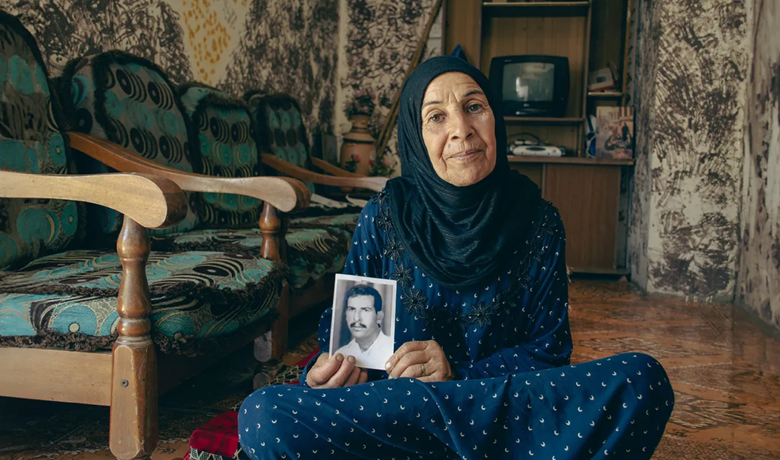The gruesome reality of women in Iraq

News Mania Desk / Piyal Chatterjee / 11th November 2024
Thousands of women and advocates for women’s rights demonstrated in the streets of Iraq in early August 2024 against proposed legislation that would essentially legalize child marriage. The proposed amendment would provide citizens the option to decide family disputes through the civil justice or religious authority. The modification would enable the implementation of Islamic Shia or Sunni sects’ provisions, after which Sharia jurisprudence would be applied to the pertinent individuals in all cases pertaining to their personal status. Out of the three needed parliamentary readings, the law reform passed its first one.
As explained by Professor Javaid Rehman, Professor of Law at Brunel University London, “The application of Sharia jurisprudence would have significantly negative consequences for women and girls in personal status matters; this would not only legitimize child marriages but also have a discriminatory impact on them in matters relating to inheritance, divorce and child custody. Within traditional Islamic jurisprudence, it is the puberty of a girl that determines her capacity to be married (and not any formal age).” Furthermore, as Professor Javaid added, the bill would have retrospective application, meaning that individuals could decide (subsequent to the bill becoming law) to retrospectively rely upon the Sharia jurisprudence in matters related to all personal status.
Child marriage is already a problem in Iraq. As of right now, the Personal Status Act (No. 188 of 1959) stipulates that both men and women must be at least 18 years old to get married, while there is a legal exception that permits girls to get married at the age of 15. A survey conducted by UNICEF, the UN agency for children, found that 28% of Iraqi females were married before turning 18. Considering that girls as young as 15 can only be married under certain conditions, this is a fairly high number. There doesn’t appear to be an exception for 28%, or more than one in four girls. Additionally, child marriage is a problem that impacts a person’s entire life.
As reported by UNICEF, “Child marriage robs girls of their childhood and threatens their well-being. Girls who marry before 18 are more likely to experience domestic violence and less likely to remain in school. They have worse economic and health outcomes than their unmarried peers, which are eventually passed down to their own children, straining a country’s capacity to provide quality health and education services. Child brides often become pregnant during adolescence, when the risk of complications during pregnancy and childbirth increases. The practice can also isolate girls from family and friends, taking a heavy toll on their mental health.”
Women and activists flocked to the streets around Iraq for the same reason. Given that Iraq is commemorating the tenth anniversary of the Daesh attack on Sinjar and the atrocities committed against the Yazidis and other religious minorities in the nation—atrocities that fall under the legal definition of genocide—the proposal to amend the law to permit child marriage is all the more contentious. Mass murders, kidnappings, forced marriages, rape, and sexual assault were among the Daesh horrors. Daesh kidnapped thousands of Yazidis, including young girls who were beaten daily and forced to “marry” their kidnappers and every guy they were later sold or given to. Even now, more than 2,600 Yazidi women and children remain unaccounted for; if they are still alive,
The proposed legal change is clearly in violation of international law standards and Iraq’s international law obligations.
Iraq is a party to the Convention on the Elimination of All Forms of Discrimination against Women (CEDAW) and the Convention on the Rights of the Child (CRC). In accordance with the joint general recommendation by CEDAW and CRC, child marriages are forced marriages and therefore unlawful in international law.
At the time of accession to CEDAW, Iraq made several reservations that ultimately undermined the treaty and its effectiveness. As its reservation, Iraq indicated that “approval of and accession to this Convention shall not mean that the Republic of Iraq is bound by the provisions of article 2, paragraphs (f) and (g), nor of article 16 of the Convention. The reservation to this last-mentioned article shall be without prejudice to the provisions of the Islamic Shariah according women’s rights equivalent to the rights of their spouses so as to ensure a just balance between them.” Article 2 of CEDAW states that “States Parties condemn discrimination against women in all its forms, agree to pursue by all appropriate means and without delay a policy of eliminating discrimination against women and, to this end, undertake: (…) (f) To take all appropriate measures, including legislation, to modify or abolish existing laws, regulations, customs and practices which constitute discrimination against women (g) To repeal all national penal provisions which constitute discrimination against women.”
Article 16 of CEDAW states that “1. States Parties shall take all appropriate measures to eliminate discrimination against women in all matters relating to marriage and family relations and in particular shall ensure, on a basis of equality of men and women (…) 2. The betrothal and the marriage of a child shall have no legal effect, and all necessary action, including legislation, shall be taken to specify a minimum age for marriage and to make the registration of marriages in an official registry compulsory.”
In 2019, the CEDAW Committee urged Iraq to implement a comprehensive plan to eradicate harmful practices, including child marriage, and discriminatory stereotypes. The proposed legislative change for 2024 does the exact opposite. The CEDAW Committee demanded that Iraq remove the Personal Status Act’s discriminatory legal exemptions to the minimum age of marriage for girls. It also suggested that girls and boys who are at least 16 years old and provide their express agreement should only be eligible for legal exceptions to the minimum age of marriage in extraordinary circumstances that have been approved by a court of competent jurisdiction. Once more, the proposed legal change for 2024 accomplishes the exact opposite.
Iraq must decide where it stands on human rights, particularly women’s rights, regardless of whether it is emboldened by the Taliban’s repression of women’s rights in Iran or Afghanistan, where they have done so with impunity. Iraq must guarantee better, not weaker, protections for women’s rights if it hopes to fulfill its commitments to them in the wake of the horrible crimes committed by Daesh since 2014.






